Comments
ANIMAL WATCH - California, the entire nation and world saw tremendous progress in awareness of the need to protect animals in 2023. Those in cages and barns awaiting slaughter, those used for scientific testing, those used in legal and illegal “sports,” and the current XL Bully threat in the U.K. are forcing government awareness and admission that while protecting animals, it is also their job to assure people are protected from dangerous dogs.
Here are a few of the major issues that were considered/decided in 2023 and some may be continued until 2024:
BAN ON ANIMAL-FUR PRODUCTS
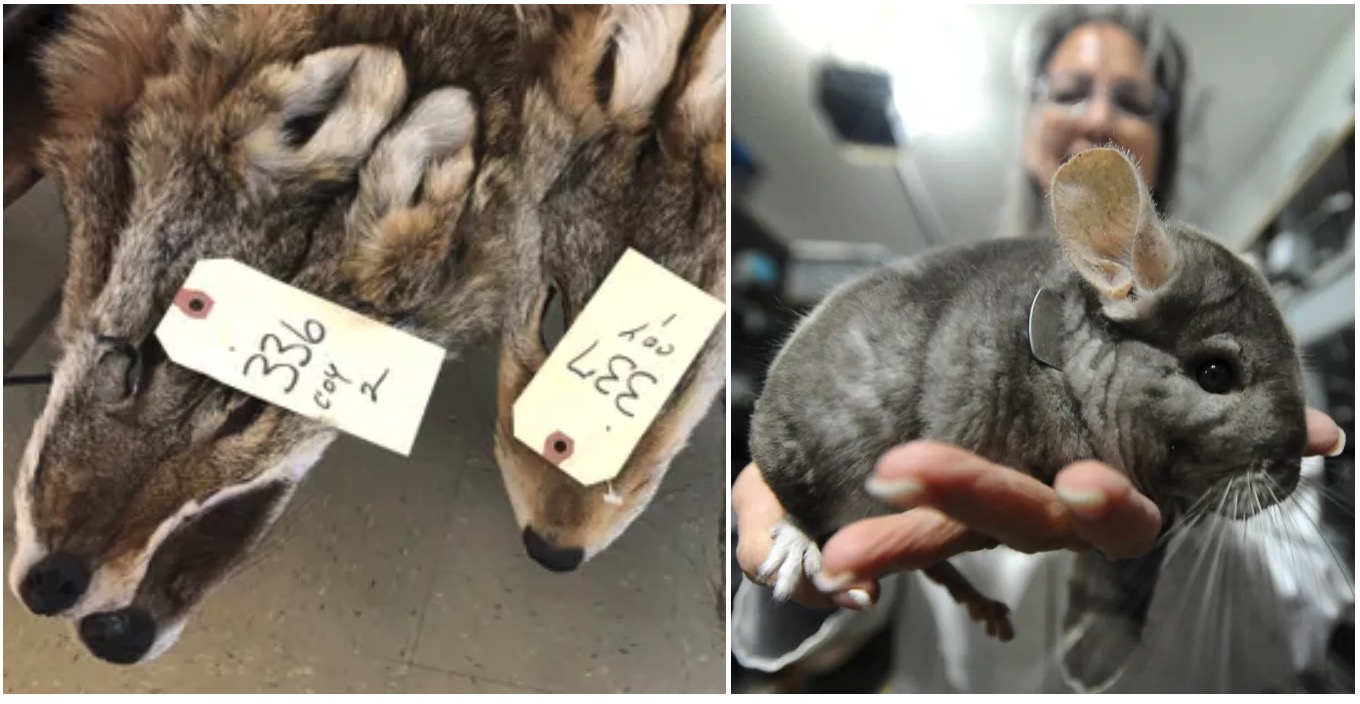
California’s ban on the sale and manufacture of new animal-fur products (amending Sec. 2023 and Sec. 3039 of the CA Fish and Game Code) went into effect on January 1, 2023—reportedly making CA the first state to officially end the fur trade across the entire state.
The new law only applies to the sale of new fur garments. It explicitly does not affect the sale of used fur products, thus permitting the ongoing sale of used fur products by consignment, nonprofit thrift stores, second-hand stores or pawn shops.
California and Nine Other States Pass Legislation to Close Loophole in Prohibition of Animal Testing of Cosmetics

California Civil Code Sec. 1834.9 closed a loophole in the original ban on the use of animal testing conducted out of state by companies that sell cosmetics within the state of California.
Through the PET Act (AB 357), as of March 15, 2023, which proposed changes for coherence ad clarity, California effectively became the first state in the U.S. to remove the option for companies seeking to conduct toxicity testing on their products through the use of cats and dogs, except where required by federal law.
California helped pave the way for banning the use of animal testing in cosmetics and for other toxicity testing purposes in 2018. Animal Legal Defense Fund reports that, as of October 2023, ten states have joined California in banning cosmetic testing on animals: Nevada, Illinois, Maryland, Virginia, Hawaii, Maine, New Jersey, Louisiana, New York, and Oregon.
California’s Prop 12 Finally in Full Effect
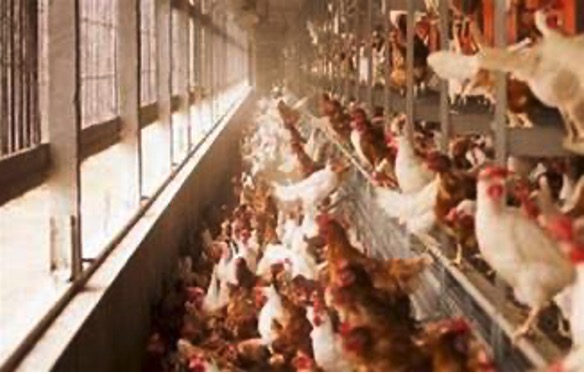
On January 2, 2024, Food Safety News announced full implementation of CA’s Prop. 12, California’s cage-free eggs and bacon law, with reporter Dan Flynn stating that, “The first day of 2024 marks the successful end to more than six years of political efforts to oppose this ballot measure passed by California voters in 2018, which placed unprecedented prohibitions on selling food from farm animals not housed under specific standards.”
Proposition 12 is based on health and safety issues and prohibits producing and selling products in California involving the extreme confinement of mother pigs, egg-laying chickens, and calves used for veal.
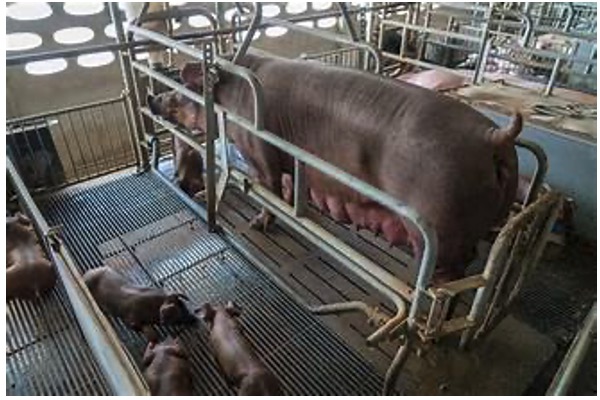
It also bans the use of gestation crates, which are metal cages so small they prevent mother pigs from being able to turn around.
Prop. 12 requirements for egg-producing chickens and veal were already in effect, but provisions regarding pork had been delayed reportedly “to allow non-compliant pork to make it through the supply chain.”
The pork industry claimed prices would rise and opposed Prop. 12 all the way to the Supreme Court, where a final ruling was made that “states are free to limit meat sales.”
After Prop 12 in California, 14 other states are reported to have passed similar laws.
South Korea Passes Bill to Ban Eating Dog Meat, as Demand Wanes

South Korea’s parliament passed a bill on January 9, banning the breeding and slaughter of dogs for consumption, and ending the increasingly controversial and unpopular tradition that has become loathsome to a new generation where dogs and cats are pets, not food.
The bill received rare bipartisan support across South Korea’s divided political landscape, and after the three years allowed for adjustment of businesses, the new law will ban “the distribution and sale of food products made or processed with dog ingredients.”
However, customers who consume dog meat or related products will not be subject to punishment, according to the report.
The penalty for slaughtering a dog for the commercial food industry can be up to three years in prison or a fine of up to 30-million Korean won (about $23,000). A lesser fine will be assessed for anyone who breeds dogs for eating, or “who knowingly acquires, transports, stores or sells food made from dogs.”
“By the end of 2023, some 1,150 farms had raised 2 million “meat dogs” supplying the country’s 1,600 restaurants,” according to the report.
International pressure to end what is now considered a barbaric practice started with the 1988 Seoul Summer Olympic Games, when it gained public attention, according to Humane Society International specialist Peter Li.
In 2023, when multiple bills against the dog meat trade were introduced, the traders organized what turned out to be their last-ditch effort to turn back the tide of history. They staged a protest before the presidential palace and threatened to set free all the “meat dogs.”
WILL THIS AFFECT NORTH KOREA AND CHINA?

It is expected that the decision could cause a similar prohibition in North Korea, but the greatest impact may be on mainland China, which is reportedly facing similar pressure from younger citizens who have not eaten dog meat and consider dogs and cats human companions, not dinner.
As the world’s largest dog meat market, mainland China has come to a crossroads and should take a serious look at its dog meat sales also, Peter Li writes.
China has long been criticized for its dog meat trade, particularly the staging of the Yulin Dog Meat Festival, a commercial event created by Yulin’s dog meat dealers.
“Dog meat is not a household food in China,” the report states. A 2016 survey by Beijing’s Capital Animal Welfare Association and Humane Society International found that 72 per cent of Yulin residents did not regularly eat dog meat while only 12 per cent ate it weekly.
“Ending the trade would also remove another barrier between the mainland and the dog-meat-free societies in Taiwan and Hong Kong. More importantly, ending the trade would encourage the rise of a more compassionate, harmonious society,” says Peter Li.
BANS ON XL BULLY BREED DOGS IN ENGLAND, WALES MAY SOON SPREAD TO SCOTLAND AND, POTENTIALLY, NORTH IRELAND
For an in-depth discussion of this issue, please see CityWatchLA article, XL Bully Ban Becomes Law in UK: Dangerous Dog Reports Could Double, Police Say.
Bans on XL Bully Breed Dogs in England and Wales for public safety due to the overwhelming and increasing attacks on innocent citizens, children and other animals have already been passed. Scotland, where they were being dumped by Bully owners who feared they would be euthanized, has announced its intention to also adopt the ban.
North Ireland is now under pressure to not also become a harbor for the hundreds of dogs of this breed being dumped by owners. This is also an indication that the public is tired of being the victim and paying for laws and enforcement to end a problem created by a few who do not care about the safety of others.
Bully or Pit Bull owners are also facing the restrictions on the breed listed here by Expasti—a site for those planning to move to other countries with a dog of this breed.
2024 Laws to Protect Animals
On May 24, 2007, the last slaughterhouse in the USA producing horsemeat for human consumption was closed by State statute.
Recently there have been several state and federal regulatory initiatives in the USA intended to prevent the slaughter of horses for human consumption outside of the country.
2023-2024 PROPOSED BILLS: STOP THE EATING OF HORSE MEAT IN 2024 (SAFE Act)
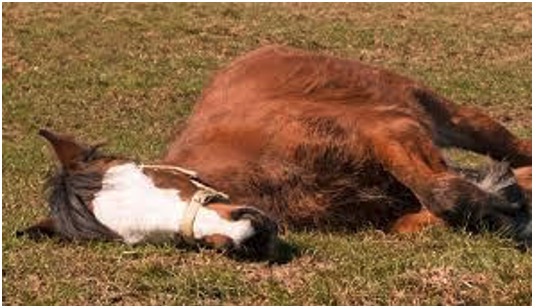
Two bills are now being considered in the Senate (S. 2037) and House of Representatives (H.R. 3475) in the current session to encourage US. Legislators to support a ban on the brutal transportation of horses to other countries for slaughter (primarily Canada and Mexico) and the U.S. thereby being complicit in sending their meat to Europe and Asia.
“It’s in 2024 that we must convince Congress to pass the SAFE Act as an amendment to the Farm Bill. The rationale for the entire ugly trade vanished long ago,” says Wayne Pacelle, founder of Animal Wellness Action. This bill permanently prohibits the slaughter of equines (e.g., horses and mules) for human consumption.
(Current law prohibits the slaughter of dogs and cats for human consumption. This bill extends that prohibition to equines.)
HORSE RACING LAWS TIGHTENED IN 2023
“Finally, in 2023, there is a new authority operating the federal level setting safety standards for thoroughbreds in competition,” said Wayne Pacelle, president of Animal Wellness Action and the Center for a Humane Economy. “No longer will the nation tolerate routine breakdowns and other horse deaths in American racing. There is now a regulatory framework to identify these problems and to remedy them.”
ANIMAL LAW FOCUS FOR THE FUTURE
Without question, gambling on animal-involved “sports,” such as, dog fighting, cockfighting, horse racing and dog racing, the cruelty of rodeos and any event where an animal is involved in violent contact, or for the purpose of outrunning or overpowering another always involves some type of gambling on who will be the winner or survivor, which can now be done on-line from anywhere in the world because of telecasting.
The horrendous outcome of on-line gambling on cockfighting (E-Sabong) in the Philippines should be recognized as a potential worldwide tragedy and addiction crisis:
See: Mother Sells Baby to Pay Online Gambling Debt
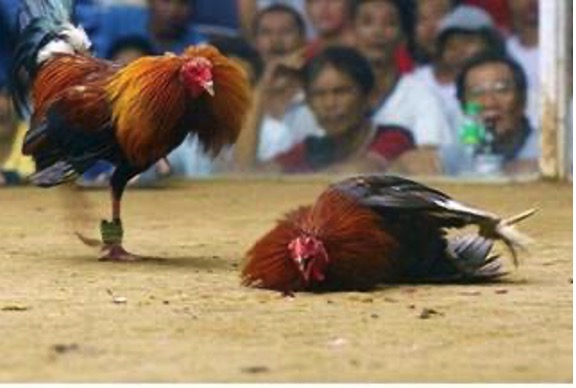
A 22-year-old mother in Pasiq City who was terrified of the consequences of not paying off an $870 bet she lost on an “E-Sabong” online cockfight-betting site in the Philippines, sold her 9-month-old daughter in March to a human trafficker she found on Facebook.
Greyhound Racing Must End (along with “hare coursing”)

A landmark ballot measure in Florida set the nation on a path to end all greyhound racing in the United States. That ballot measure, which passed with a “YES” vote of 69%, shuttered 12 of the 18 operating tracks in the United States. Since then, four more tracks have closed.
Carey Theil, cofounder of the advocacy group that spearheaded the campaign, spoke about animal advocacy, stating: “Florida really has set the standard now for others working around the world, because they can all say, “If Florida did it, we can do it too, and we should do it too,” she said.
“And that is where it must be kept now—on informing legislators and, thus, the voting public, about the sport’s “corruption and cruelty.”
In this same article an ad was run announcing that : Sports betting is coming to Florida Seminole casinos in December—a reminder that greed and gambling are behind almost all animal-involved organized sports.
Since Florida took action, other states, like Arkansas and Iowa, reportedly have also ended greyhound racing.
Greyhound Protection Act
The Greyhound Protection Act is a federal bill to phase out greyhound racing. The measure, which amends the Animal Welfare Act, also outlaws remote gambling on dog races and prevents greyhounds from being put into interstate or international commerce for the purpose of dog racing.
“The American greyhound racing industry is in freefall, with live racing and foreign racing collapsing,” said Pacelle, “and this is precisely the right time for Congress to act and to pass the Greyhound Protection Act to close out a century-long enterprise that lost favor with American sports enthusiasts and gamblers decades ago.
This would also end the brutality “hare coursing,” during which numerous greyhounds chase rabbits and are rewarded for a catch which allows them to kill the terrified creature. Many of the rabbits die of heart failure and other bodily malfunctions from fear and are torn apart live by more than one dog.
HOW WE ALL CAN HELP
The foregoing are just a few of the items that have been introduced and/or enacted in 2023 or 2024, and you can be part of creating a better future for animals and people. It is important to be aware and involved in your local government agency meetings, which can often be done virtually.
The best way to stop animal suffering is with your vote and sharing with local and national legislative representatives your intent to be part of the changes that end cruelty and exploitation of voiceless creatures and in developing protections also for humans that may be victims of attack by dangerous dogs—and that you expect the same of them.
(Phyllis M. Daugherty is a former Los Angeles City employee, an animal activist and a contributor to CityWatch. )





